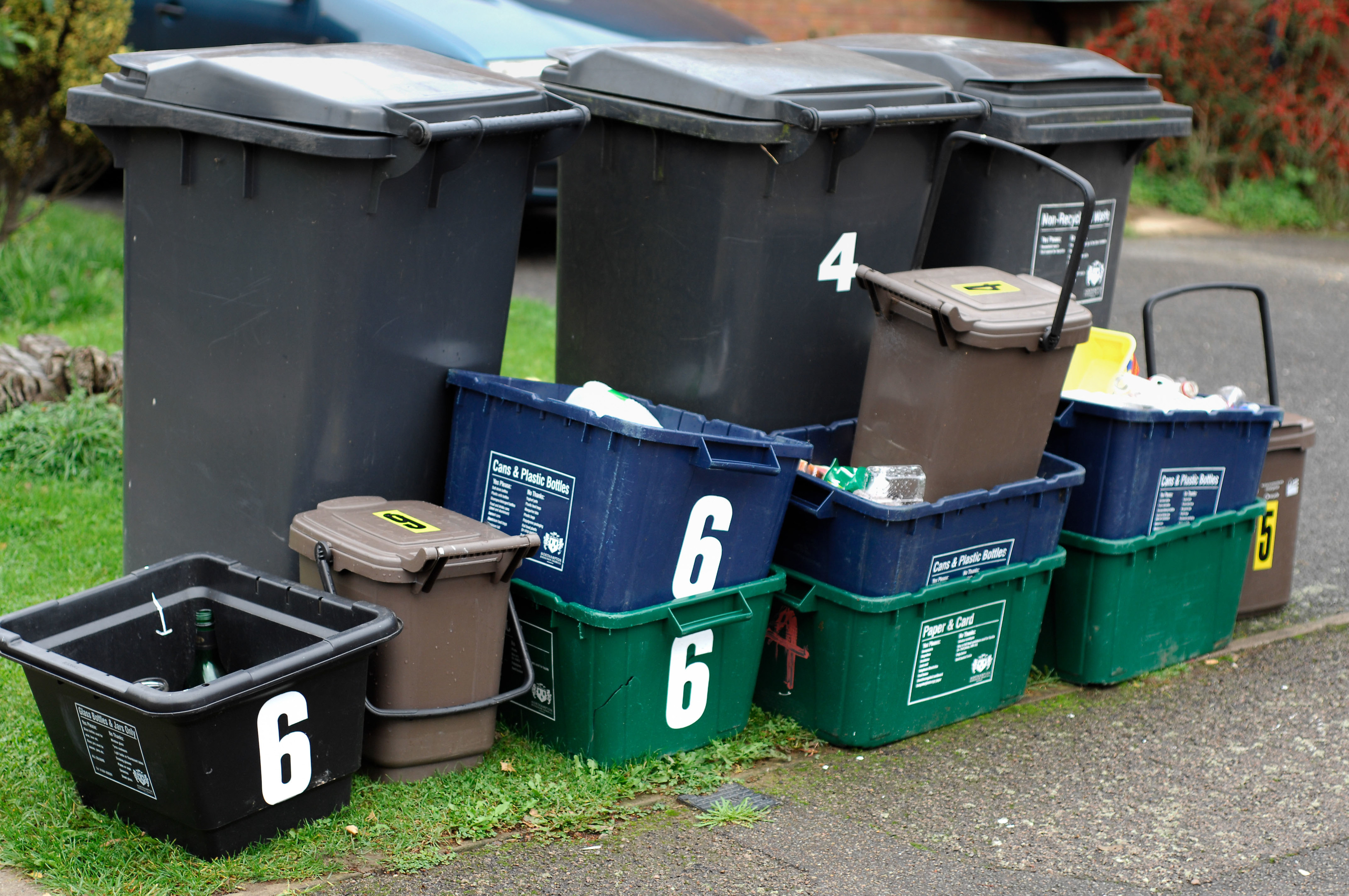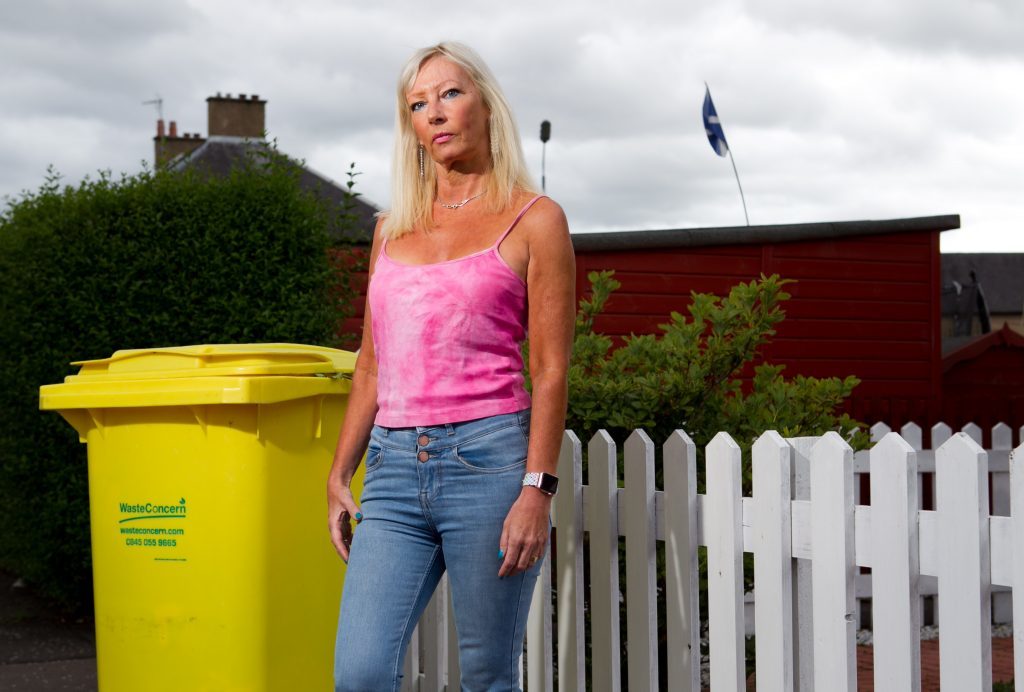
COUNCIL bin officials are visiting frazzled families once every 30 minutes to speak to them about what they put in an array of bins and rubbish holders.
Local authority waste officials racked up nearly 17,500 visits to households last year to discuss bin mix-ups and other domestic waste issues.
The total is up from 13,000 the year before.
However, the true picture may be even higher, as half of Scotland’s councils said they either didn’t collate the figures or wouldn’t provide them.
Last night politicians and campaigners blasted the findings.
With some councils already fining people for putting out the wrong bin or too much rubbish in some areas, they fear it is only a matter of time before “bin police” are able to hit tax-payers with cash fines Scotland-wide.
Cash-strapped councils are increasingly tasking officials with making sure householders put the right waste in a growing – and confusing – number of bins.
The bewildering range of options has kept step with a Scottish Government aim to recycle 60% of all household rubbish by 2020.
But Scotland is lagging behind.
In 2014, the Scottish Environ-ment Protection Agency said more than two-thirds of councils missed a 50% recycling target.
The failure has resulted in councils rolling out an increasing number of bins to achieve the 2020 goal.
As a result, families now have as many as six different ways of putting out rubbish in some areas.
But – while councils are upping a recycling arms race – expensive bin collections are likely to fall.
Falkirk is set to become the first council in the UK to move to collecting non-recyclable domestic waste just once every FOUR weeks.
It is writing to families tomorrow to tell them about its plans set for October. The move will save the authority around £150,000 a year.
But residents fear the policy will mean an explosion of rats, with soiled nappies, pet waste, and used kitchen towels left to fester for up to a month.
To aid its waste revolution, Falkirk employs three waste minimisation officers, or “bin bureaucrats”, who earn around
£19-21,000 a year in some areas.
Last year, the Falkirk officials visited 1176 homes, up from 897 visits in 2013/14.
Many visits were made “to help the householder manage their waste”.
North Lanarkshire Council also employs two “bin police”, who visited around 2500 households last year.
East Ayrshire, which gives people six bins and only picks up non-recyclables every three weeks, employs four “Community Waste Officers”.
Between them, they went to 4443 homes last year to talk about household rubbish – up from 4355 the year before.
Renfrewshire Council racked up 2715 visits and West Dunbartonshire Council made 1694 trips to speak about bins to bewildered locals.
The rest of the councils which took part in our survey – Aberdeenshire, Angus, Dumfries and Galloway, Glasgow, Midlothian, Orkney, Perth and Kinross, the Scottish Borders, Stirling, West Lothian and the Western Isles – recorded nearly 5000 visits between them.
Only Angus Council reported a fall in visits in a year – down from 1891 in 2014/15 to 1633 last year.
Scotland’s two biggest cities – Glasgow and Edinburgh – were unable to give figures for 2015/16.
Edinburgh is one of two councils which fines house-holders for bin mishaps. Officials in the Capital dished out 325 fixed penalty notices last year for a variety of offences including “waste presented on the wrong day, burst bags or excess waste”.
Stirling Council is the other authority that fines householders for “domestic waste issues”. It has issued 64 £80 fixed penalty notices since 2015. Only 14 have been paid.
Scottish Conservative MSP Alex Johnstone said the waste situation is getting out of hand. “Instead of investing in glossy recycling adverts and Big Brother tactics, the Scottish Government must ensure our local councils provide a much better waste provision to taxpayers,” he said.
Jonathan Isaby, chief executive of the TaxPayers’ Alliance, said: “This seems to be a bit of overkill and residents will be left wondering how this can possibly be the best use of taxpayer-funded resources. Authorities need to be much smarter about allocating resources.”
A spokesman for Cosla, which represents most of Scotland’s local authorities, said Scots understood the importance of recycling.
He said: “Householders across Scotland are already making tremendous progress to increasing recycling rates and ensuring that we keep materials in use for as long as possible.
“Local authorities encourage all efforts to increase recycling, applaud those who already participate and encourage all householders to use the services appropriately and do their bit for a cleaner, greener Scotland.”
All too much for ‘yellow bin woman’
A FORMER shop worker got so sick of baffling bin collections that she started paying a private firm to sort out her rubbish.
Elaine Moir, from Grangemouth, was sent over the edge by the hassle of dealing with five bins on top of caring for her husband, Alex, who has dementia.
She explained: “Looking after Alex is a 24-hours-a-day, seven-days-a-week job.
“Sorting out my rubbish became a massive drain. I’d turn around and my husband would have put a plastic bottle in the non-recyclable bin, for example.
“Explaining to him the nuances of our council’s recycling system became too much.
“I reached the end of my tether.”
The 53-year-old looked online and discovered a private company called Waste Concern, based in England, would empty her bins if she paid them.
She said: “I bought a bin for £60 and pay them £15 every month to empty the bin once. I put anything in it and they sort it.
“I’ve learned I’m far from alone.
“I’ve become famous in my community as the yellow bin woman and people are always coming up to me to say they feel exactly the same way.
“A lot of those folk are vulnerable and elderly.”
Spencer Feldham, 43, who set up Waste Concern, said: “People are fed up and you sense councils are too.”
READ MORE
Dedicated litter picker’s rubbish bags would reach as high as Mont Blanc if piled up

Enjoy the convenience of having The Sunday Post delivered as a digital ePaper straight to your smartphone, tablet or computer.
Subscribe for only £5.49 a month and enjoy all the benefits of the printed paper as a digital replica.
Subscribe